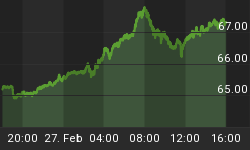Automakers are making serious commitments to robotic, electrified vehicles of the future - but car buyers haven’t yet bought in.
The Center for Automotive Research (CAR), a leading automotive research firm, just released a new study that casts doubt over autonomous and electric vehicles taking a huge share of traditional gasoline and diesel engine vehicles off the market soon.
Automakers are committing to making serious investments in personnel and capital expenditures in fully autonomous vehicles, electric vehicles, and mobility services similar to Uber and Lyft - and sometimes partnerships with these shared ride companies. Yet, consumer studies and buying patterns are showing that winning over their hearts and minds to the new technology will be taking quite a few years.
The new study’s title describes these findings: “The Great Divide: What Automotive Consumers are Buying vs. Auto & Supplier Investments in Future Technologies, Products & Business Models.”
The study identifies the technology of the future as automated, connected, electric, and shared vehicles (ACES). Automotive analysts and journalists have named these automated vehicles and mobility services as “robotaxis” in the past year.
The study finds that these robotaxi services may be the way to get consumers to use the new autonomous vehicle technology without having to make a serious investment in their first automated car. Current projections for battery and technology costs means that autonomous and electric vehicles will remain out-of-reach for personal vehicles owned by consumers, the study says. Most of those miles will be traveled in fleet vehicles operated by companies like Waymo, Uber, Lyft, General Motors, Tesla, and Ford.
Reaching fully autonomous vehicles, classified as Level 5, is many years out. The study predicts that only 3.8% of new vehicles sold in 2030 will be capable of reaching Level 4 or Level 5 autonomy. CAR also forecasts that by 2030, more than 90% of vehicles sold will still have conventional engines, with just 8% powered by electrification or fuel cells.
With gasoline and diesel prices relatively low and electric vehicles typically carrying a price premium, just 3.3% of vehicles in the United States had some form of electrification in 2017. That included hybrid vehicles, plug-in hybrids, and battery electric vehicles.
Low fuel prices and premium EV purchase prices have kept electrified vehicles at only about 1% of sales in major global markets lately. That won't be changing substantially in the near future.
Speaking at an Automotive Press Association event in Detroit this month, Carla Bailo, CAR president, said that looking at consumer buying trends and opinions on the new technology is painting a different picture than what automakers and technology companies seem to assume is imminent.
Related: The 5 Worst Performers In February’s Stock Downturn
"First you've got to address what the consumer demand is," Bailo said. "You cannot dictate what you think the customer should be buying."
The time period where conventional personal vehicles and ACES will coexist on U.S. roadways will take decades, according to the CAR study. Consumers will eventually realize the benefits for safety and convenience of taking an autonomous ride for work and pleasure in increasingly crowded cities.
Automakers and suppliers are hoping to amortize their technology investments over millions of vehicles sold at a global scale. For now, the U.S., China, France, and the U.K, are seeing much of the activity in autonomous vehicle testing and government policies for vehicle electrification.
Mobility companies like China’s giant Didi Chuxing, along with Uber, Lyft, and GM’s Maven unit, are expected to play a key role in the testing and deployment of electrified, automated mobility services in the next few years.
Economic forces and the reality of developing and getting consumers to adopt the new technology will take their toll. If sales slump and profitability lags, automakers will have a real challenge in keeping up with their current level of investments in developing and deploying the new technology.
“Automotive investments in new products, new technology, new processes, and advanced R&D all suffer during an economic contraction. A prolonged market slump, or a steep market correction, could delay the full implementation of EVs and AVs by as long as 5-10 years,” the study said.
Automakers are taking the game seriously, for now. Tesla is investing heavily in its more affordable Model 3 electric car but is also continuing to make autonomous vehicle technology part of its business plan. Conditional automated technology, which is called Autopilot by the company, can lead to fully autonomous vehicles and will be part of the Tesla Network of shared, automated electric vehicles.
Volkswagen is counting on the VW Buzz, a futuristic version of the classic VW microbus. The VW Buzz will offer consumers an automated, connected, and electrified vehicle.
GM recently rolled out 130 Chevrolet Bolts with AV technology for on-road testing. The automaker has also placed all-electric Bolts into its Maven car-sharing division. Automated Bolts may be delivered to customers through Maven, and through its investment in ride-hailing firm Lyft.
Shared, electric rides are expected to address some of the concerns raised by environmental agencies, urban planners, and automakers over traffic congestion, safety, and air pollution. For now, personal vehicles driven by their owners and powered by petroleum is the norm.
By Jon LeSage for Oilprice.com
More Top Reads From Safehaven.com:
















